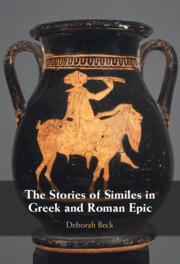According to recent work on lexical pragmatics within the relevance-theoretic framework, grasping the intended meaning of a metaphorically used word requires a process of adjusting the linguistically encoded concept to derive an ad hoc concept whose denotation is broader than that of the lexical concept. Metaphorical uses are claimed to be one kind of loose use of language, on a continuum with approximations, hyperboles and other kinds of meaning extension. The question addressed in this paper is whether this account fully captures the processes involved in understanding metaphors and the kinds of cognitive effects they have. We tackle this question by examining the similarities and differences between metaphors and hyperboles and between metaphors and similes. The upshot of our analyses is two proposals, both requiring further investigation: (a) that a distinction should be drawn between the kind of ad hoc concepts derived for hyperbolic and other loose uses, on the one hand, and metaphorical uses, on the other, and (b) that the understanding of some metaphorical uses, in particular extended and/or novel creative cases, is achieved by a different mode of processing altogether, one which gives much greater weight to the literal meaning.
